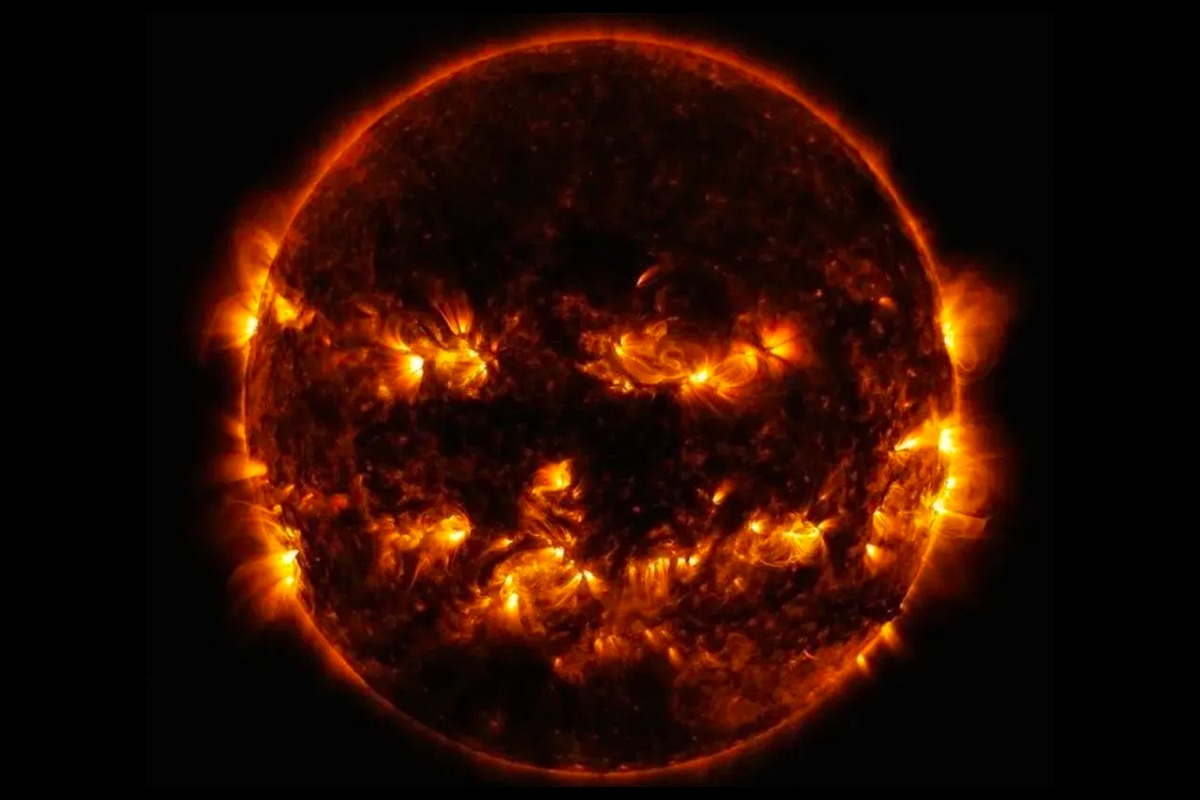NEW DELHI: On Monday, a radio blackout occurred over the Pacific Ocean following a solar storm’s impact on Earth. ‘Earth.com’ reported that the blackouts were identified around 4:20 pm EST (2:50 am IST) along the western US and South American coasts, lasting only a brief period of a few seconds. The National Oceanic and Atmospheric Administration (NOAA) also acknowledged the solar storm on its website, categorising it as R2 (moderate).
Solar flares are significant outbursts of electromagnetic radiation emanating from the Sun, lasting for varying durations from minutes to hours. The rapid release of electromagnetic energy moves at the speed of light, meaning that any impact on the sunlit side of Earth’s outer atmosphere coincides with the observation of the event.
The potent flow of charged particles also affected the polar regions, causing an outage that persisted for approximately seven hours, as mentioned in the earth.com report. This occurrence is part of a sequence of solar storms emitted by the Sun since the beginning of the new year. The Space Weather Prediction Center of NOAA has suggested a 60 per cent likelihood that the current storm may interfere with the power grid.
Also Read: World leaders brace for potential Trump resurgence
Anticipated on Wednesday, an additional solar storm has the potential to impact radios, aviation communication, and compromise satellite operations. These incidents are likely to generate breathtaking auroras visible in northern Wyoming, South Dakota, Iowa, Wisconsin, Michigan, New York, New Hampshire, Vermont, and Maine.
Physicist Tamitha Skov, who regularly posts updates from X and other platforms
“We have one, if not two solar storms headed for Earth today! The first launched near (Sun’s) Region 3555. It is expected to hit early to midday January 22. The second is a side-swiping storm launched near 3559. It may give us a glancing blow January 23. Also, an unstable filament is in the Earth-strike zone now. If it launches it will be a third storm headed towards Earth!” she wrote on X.
We have one, if not two #solarstorms headed for Earth today! The first launched near Region 3555. It is expected to hit early to midday January 22. The second is a side-swiping storm launched near 3559. It may give us a glancing blow January 23. Also, an unstable filament is in… pic.twitter.com/Iwe744c5xe
— Dr. Tamitha Skov (@TamithaSkov) January 21, 2024
How does a solar storm lead to a radio blackout?
NOAA explains that when a sufficiently powerful solar flare takes place, it generates ionisation in the lower, denser sections of the ionosphere, known as the D-layer. Radio waves interacting with electrons in these layers experience energy loss because of the increased frequency of collisions within the higher-density environment of the D-layer.
Also Read: Undoubtedly descendant of Lord Ram: Udaipur prince ahead of Ayodhya temple launch
This can lead to the deterioration or complete absorption of high-frequency radio signals, resulting in a radio blackout. This blackout manifests as the absence of HF communication, primarily affecting the 3 to 30 MHz band.

